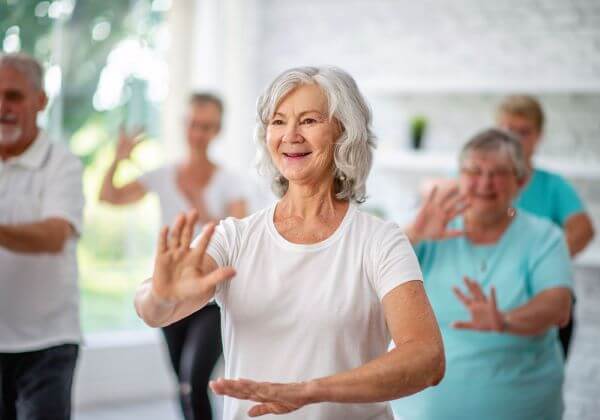Stress in the elderly has many sources, including the loss of a partner, money worries, health problems and a lack of independence. For the majority of elderly individuals, stress affects them both physically and psychologically. Before we cover some of the best relaxation techniques for elderly, let´s look at stress in the elderly.
Table of Contents
Overview of Stress in the Elderly
Identifying the Symptoms of Stress in the Elderly
Common symptoms of stress in the elderly include chronic muscle aches and pains, headaches, chest pain, a pounding heart, sleeping difficulties, weight loss or gain, and an upset stomach.
The mood of a stressed-out elderly individual may be erratic, resulting in a short temper, and others may be blamed for the difficulties faced. For some elderly individuals, stress leads to more complex problems, such as depression, or may result in a complete withdrawal from everyday activities.

Helping the Elderly to Cope With Stress
Stress is an issue that is best dealt with head-on. An elderly individual who is suffering from stress will require the help and support of their friends and relatives. While it may be difficult for them to talk about the sources of their stress, the discussion is an essential way in which to resolve any difficulties faced.
The elderly must be encouraged to take care of their own psychological and physical health wherever possible, be it through eating a balanced diet, partaking in gentle yet regular exercise and engaging in activities that they enjoy. Elderly people should be encouraged to find and maintain social contact as interaction will often make a considerable difference in their lives. This is true whether they reside in care homes or in their own accommodation. Many elderly individuals fail to get sufficient sleep in the evening yet sleep is essential for good health.
If these basic steps do not make a difference to the level of stress faced, these relaxation techniques for the elderly may help.
Top 5 Relaxation Techniques for Elderly
Relaxation techniques can aid elderly individuals in reducing the amount of stress that they feel. Popular relaxation techniques for the elderly as below:
1. Muscle Relaxation
In this technique, participants are encouraged to focus on tensing up and then releasing and relaxing the muscles in their main muscle groups, including their shoulders, arms, fingers, legs and toes.
2. Visualization
This technique involves participants imagining partaking in their favorite activity in a beautiful place, such as relaxing on a sandy beach in the Mediterranean, standing on the top of a mountain in the Alps or swimming in a crystal clear lake in the Caribbean. Read about visualization!
3. Gentle Exercise
Non-strenuous exercises, such as Yoga, Pilates and Tai Chi, are popular amongst the elderly, allowing them to gently stretch and strengthen their bodies while focusing on their breathing techniques.

4. Listening To Calming Music
Soothing music can help to ease fear and anxiety in the elderly.
The elderly face stress from a range of sources, many of which are different to those that cause stress in younger individuals. However, this does not mean that stress in the elderly is insignificant. Stress can be resolved in the elderly just as easily as it can in the young. The key to combating stress is to recognize it early and treat it appropriately.
Please share this article about relaxation techniques for the elderly.











